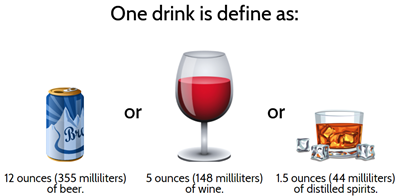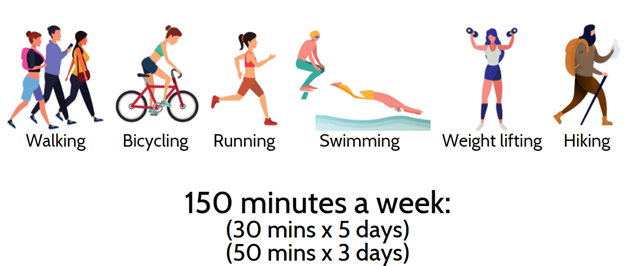|
February marks Healthy Heart month, and while farmworkers put their love all year-round harvesting the nation’s crops, they can also love themselves by taking care of their hearts. Heart health is much like farming. It is a combination of planning ahead and continuously working hard to harvest good health. Here are some recommendations about sodium intake, cholesterol levels, alcohol consumption, and physical activity that can help harvesting a strong and healthy heart: SODIUM INTAKE Sodium is a mineral that’s essential for life. It is regulated by your kidneys and helps balance body fluids. It also helps send nerve impulses and affects muscle function. The American Heart Association recommends no more than 2,300 milligrams (mg) a day and moving toward an ideal limit of no more than 1,500 mg per day for most adults. Below are the amounts of sodium in teaspoon measures:
Recommendations:
CHOLESTEROL Cholesterol is a waxy substance in our bloodstream. It is needed to create body cells, but too much cholesterol can provoke health problems. There are two types of cholesterol: Low-Density Lipoprotein (LDL cholesterol), which is bad, and High-Density Lipoprotein (HDL cholesterol), which is good. Too much of the bad, or not enough of the good, increases the risk cholesterol will slowly build up in the inner walls of the arteries that feed blood to the heart and brain. Triglycerides is another important component in cholesterol health. Triglycerides are the most common type of fat in the body, their job is to store excess fat from the food we consume. A high triglyceride level combined with high LDL (bad) cholesterol or low HDL (good) cholesterol is linked with higher risk of heart diseases. Recommendations: The best way to lower your cholesterol is reduce your intake of saturated fat and trans-fat.
ALCOHOL CONSUMPTION: The American Heart Association and National Heart, Lung, and Blood Institute do not recommend drinking alcohol just to prevent heart disease. Alcohol can be addictive and can cause or worsen other health problems. Drinking too much alcohol increases your risk of heart failure, high blood pressure, stroke among other diseases. Recommendations: If you already drink, do so in moderation. For healthy adults, that means:
PHYSICAL ACTIVITY: Regular exercise has favorable effects on reducing many risk factors for cardiovascular disease. For example, exercise promotes weight loss and can help reduce blood pressure. Regular physical activity also favorably affects the body’s ability to control glucose levels in the blood. Moderate exercise on overall cardiovascular risk, when combined with other lifestyle modifications (such as healthy eating habits, moderate alcohol consumption, and low fat and sodium intake, among others), can be dramatically beneficial. Recommendations: Physical activity is very important. At least 150 minutes of moderate-intensity aerobic exercise a week is enough to lower both cholesterol and high blood pressure. And you have lots of options, such as: To learn more about these and other ways to take care of your heart’s health, please visit:
NCFH: http://www.ncfh.org/patient_education_resources.html American Heart Association: https://www.heart.org/en/healthy-living/fitness/getting-active https://www.heart.org/en/healthy-living/healthy-eating/eat-smart/sodium https://www.heart.org/en/health-topics/cholesterol/prevention-and-treatment-of-high-cholesterol-hyperlipidemia Mayo Clinic: https://www.mayoclinic.org/diseases-conditions/heart-disease/in-depth/red-wine/art-20048281
0 Comments
Your comment will be posted after it is approved.
Leave a Reply. |
The National Center for Farmworker HealthImproving health care access for one of America's most vulnerable populations Archives
July 2024
Categories
All
|





 RSS Feed
RSS Feed